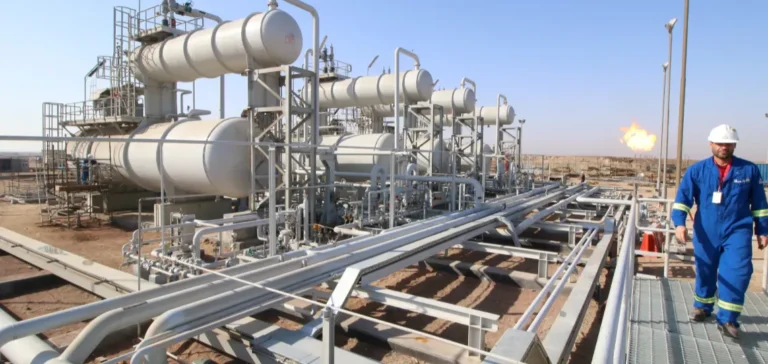Iraq is engaged in discussions with the Organization of the Petroleum Exporting Countries (OPEC) regarding a possible adjustment to its production quota, Oil Minister Hayan Abdel-Ghani said at an industry conference. The talks focus on a potential revision of the current production ceiling set at 4.4 million barrels per day (bpd), while the country’s installed capacity reaches 5.5 million bpd.
According to the minister, Iraq is adhering to its official quota despite having a higher structural production capacity. Current exports stand at approximately 3.6 million bpd. The country, considered OPEC’s largest overproducer, submitted a plan in April to implement additional output cuts to compensate for past overproduction.
Exports from Kurdistan and infrastructure
Exports from the semi-autonomous Kurdistan region of Iraq are currently fluctuating between 195,000 and 200,000 bpd, Abdel-Ghani specified. This partial recovery follows the reactivation of the Kirkuk-Ceyhan pipeline to Turkey’s Mediterranean coast. The strategic conduit had been offline for more than two and a half years, with the first barrels shipped again in October.
In addition, a fire reported the previous Sunday at the southern Zubair oilfield has not disrupted export volumes. This field, partly operated by foreign companies, is one of Iraq’s most active production sites.
Excess capacity and role within OPEC
The minister noted that Iraq remains committed to the collective decisions of the organisation while advocating for an adjustment more aligned with the country’s actual capacity. Iraq holds the world’s fifth-largest proven oil reserves and relies heavily on oil revenues to support its national budget.
Baghdad’s active participation in efforts to balance the global market comes amid prolonged price volatility and geopolitical tensions affecting the region. OPEC quotas remain a key instrument for regulating supply levels in response to fluctuating international demand.






















